#valdimir putin
Text
It’s been nearly eight months since Russian President Vladimir Putin sent troops and tanks over the border into Ukraine, and a lot has changed in that time. Ukraine has shown itself to be a far more robust military force than pretty much anyone predicted. Talk has changed from wondering how long Ukraine could hold out to how much territory it can retake — and to when and how the war will end.
But it’s still hard to imagine how Putin’s war on Ukraine will conclude. Does Putin even have an endgame? If he really wants to control Ukrainian territory, why does he seem so bent on destroying it?
To get insights into these questions, I reached out to Fiona Hill, one of America’s most clear-eyed observers of Russia and Putin, who served as an adviser to former President Donald Trump and gained fame for her testimony in his first impeachment trial. In the early days of Russia’s war on Ukraine, Hill warned in an interview with POLITICO that what Putin was trying to do was not only seize Ukraine but destroy the current world order. And she recognized from the start that Putin would use the threat of nuclear conflict to try to get his way.
Now, despite the setbacks Russia has suffered on the battlefield, Hill thinks Putin is undaunted. She sees him adapting to new conditions, not giving up. And she sees him trying to get the West to accede to his aims by using messengers like billionaire Elon Musk to propose arrangements that would end the conflict on his terms.
“Putin plays the egos of big men, gives them a sense that they can play a role. But in reality, they’re just direct transmitters of messages from Vladimir Putin,” Hill says.
But while Putin appears to be doubling down in Ukraine, the conflict poses some real dangers to his leadership. He has identified himself quite directly with the war, Hill notes, and he can’t afford to look like a loser. If he begins to lose support from Russian elites, his hold on power could slip.
The West has come a long way since February in understanding the stakes in Ukraine, Hill says, but the world still hasn’t totally grasped the full challenge Putin is posing. Putin must be contained, Hill says, but that won’t happen unless and until international institutions established in the wake of World War II evolve so they can contain him. And that conversation is only just beginning.
“This is a great power conflict, the third great power conflict in the European space in a little over a century,” Hill says. “It’s the end of the existing world order. Our world is not going to be the same as it was before.”
This conversation has been edited for length and clarity.
REYNOLDS: The war clearly hasn’t gone as Putin originally intended. How has Putin reacted to his setbacks and how do you think his mindset is evolving?
HILL: Whenever he has a setback, Putin figures he can get out of it, that he can turn things around. That’s partly because of his training as a KGB operative. In the past, when asked about the success of operations, he’s pooh-poohed the idea that operations always go as planned, that everything is always perfect. He says there are always problems in an operation, there are always setbacks. Sometimes they’re absolute disasters. The key is adaptation.
Another hallmark of Putin is that he doubles down. He always takes the more extreme step in his range of options, the one that actually cuts off other alternatives. Putin has often related an experience he had as a kid, when he trapped a rat in a corner in the apartment building he lived in, in Leningrad, and the rat shocked him by jumping out and fighting back. He tells this story as if it’s a story about himself, that if he’s ever cornered, he will always fight back.
But he’s also the person who puts himself in the corner. We know that the Russians have had very high casualties and that they’ve been running out of manpower and equipment in Ukraine. The casualty rate on the Russian side keeps mounting. A few months ago, estimates were 50,000. Now the suggestions are 90,000 killed or severely injured. This is a real blow given the 170,000 Russia troops deployed to the Ukrainian border when the invasion began.
So, what does Putin do? He sends even more troops in by launching a full-on mobilization. He still hasn’t said this is a war. It remains a “special military operation,” but he calls up 300,000 people. Then, he goes several steps further and announces the annexation of the territories that Russia has been fighting over for the last several months, not just Donetsk and Luhansk, but also the territories of Kherson and Zaporizhzhia.
Putin gives himself no way out except to pursue the original goals he had when he went in, which is the dismemberment of Ukraine and Russia annexing its territory. And he’s still trying to adapt his responses to setbacks on the battlefield.
REYNOLDS: At this point, if he’s so adaptive, do you think he has an endgame?
HILL: In his mind, I think Putin still thinks he’s got more game to play. His endgame is to go out of this war on his terms. What we’re seeing right now, with the annexations and the big speech that he made on September 30th is very clear. He sees this conflict as a full-on war with the West, and he still is adamant on removing Ukraine from the map and from global affairs.
It’s also clear that he has no intention whatsoever of giving up Donetsk and Luhansk, Kherson and Zaporizhzhia, as well as Crimea, which he’s already taken and already declared as part of Russia for time immemorial.
REYNOLDS: Why does Putin want all that territory? Does he want the symbolism of having restored an important part of the Russian Empire, reestablishing this mythological Novorossiya, taking back lands that Russia seized from the Ottoman Empire? Or does he really want to rule this part of modern-day Ukraine in concrete, practical ways?
HILL: It’s actually both of those things. They are inextricably linked. You mentioned this idea of Novorossiya, “New Russia.” I think most people have forgotten that he used this term in 2014. Back then, the Kremlin triggered the war in Donbas as part of an effort to regain control of the territories of Novorossiya that were first annexed from the Ottoman Empire by Catherine the Great back in the late 18th century.
There wasn’t really a lot of settlement there then, and that’s how we got Potemkin villages — Prince Grigory Potemkin took Catherine on a carriage ride through her new dominion and they created fake villages, with peasants brought in to wave at the empress as she went by.
We have this same issue now — what and who is Putin presiding over? Even Dmitry Peskov, Putin’s press secretary, recently admitted that Russia hasn’t quite worked out the borders of the annexed areas yet, because the Ukrainians have been pushing back. The question of what Russia actually controls beyond all the symbolism of annexation is still a major question.
REYNOLDS: If Putin wants Ukrainian territory so badly, why is he raining down such destruction on civilian areas and committing so many human rights abuses in occupied areas?
HILL: This is punishment, but also perverse redevelopment. You cow people into submission, destroy what they had and all their links to their past and their old lives, and then make them into something new and, thus, yours. Destroy Ukraine and Ukrainians. Build New Russia and create Russians. Its brutal but also a hallmark of imperial conquest.
REYNOLDS: And it’s how they did it in the 18th century.
HILL: Exactly. Putin would love to control the territory. But control involves actually having people on your side. And that is really a big question. We’ve seen in all of these territories, Russia shipping people out or detaining them, from entire families and children to teachers, administrators and local police, and then proxy citizens sent in from Russia itself.
Putin’s initial goal when he launched the invasion was the collapse of central Ukrainian authority, the imposition of a puppet government in Kyiv, and all local governments swearing allegiance to Moscow, probably with some political commissar-type proxy leaders put in place around the country — the kind of thing that we saw happening in 2014 in the Russian-occupied territories of Donetsk and Lugansk and Crimea. But of course, that didn’t happen. So the problem that Putin has is controlling people in these territories rather than playing his own version of Potemkin villages.
REYNOLDS: We’ve recently had Elon Musk step into this conflict trying to promote discussion of peace settlements. What do you make of the role that he’s playing?
HILL: It’s very clear that Elon Musk is transmitting a message for Putin. There was a conference in Aspen in late September when Musk offered a version of what was in his tweet — including the recognition of Crimea as Russian because it’s been mostly Russian since the 1780s — and the suggestion that the Ukrainian regions of Kherson and Zaporizhzhia should be up for negotiation, because there should be guaranteed water supplies to Crimea. He made this suggestion before Putin’s annexation of those two territories on September 30. It was a very specific reference. Kherson and Zaporizhzhia essentially control all the water supplies to Crimea. Crimea is a dry peninsula. It has aquifers, but it doesn’t have rivers. It’s dependent on water from the Dnipro River that flows through a canal from Kherson. It’s unlikely Elon Musk knows about this himself. The reference to water is so specific that this clearly is a message from Putin.
Now, there are several reasons why Musk’s intervention is interesting and significant. First of all, Putin does this frequently. He uses prominent people as intermediaries to feel out the general political environment, to basically test how people are going to react to ideas. Henry Kissinger, for example, has had interactions with Putin directly and relayed messages. Putin often uses various trusted intermediaries including all kinds of businesspeople. I had intermediaries sent to discuss things with me while I was in government.
This is a classic Putin play. It’s just fascinating, of course, that it’s Elon Musk in this instance, because obviously Elon Musk has a huge Twitter following. He’s got a longstanding reputation in Russia through Tesla, the SpaceX space programs and also through Starlink. He’s one of the most popular men in opinion polls in Russia. At the same time, he’s played a very important part in supporting Ukraine by providing Starlink internet systems to Ukraine, and kept telecommunications going in Ukraine, paid for in part by the U.S. government. Elon Musk has enormous leverage as well as incredible prominence. Putin plays the egos of big men, gives them a sense that they can play a role. But in reality, they’re just direct transmitters of messages from Vladimir Putin.
REYNOLDS: Putin is very comfortable dealing with billionaires and oligarchs. That’s a world that he knows well. But by using Musk this way, he goes right over the heads of [Ukrainian President Volodymyr] Zelenskyy and the Ukrainian government.
HILL: He is basically short-circuiting the diplomatic process. He wants to lay out his terms and see how many people are going to pick them up. All of this is an effort to get Americans to take themselves out of the war and hand over Ukraine and Ukrainian territory to Russia.
REYNOLDS: You have compared Putin’s invasion of Ukraine to Hitler’s invasions of other countries in World War II, of Czechoslovakia, of Poland. Do you still see it that way? Do you think that Putin has become Hitler-like in how he thinks of himself and how he seeks territory?
HILL: Yes, but also like Kaiser Wilhelm in World War I as well. Look, exactly 100 years before Putin annexed Crimea in 2014, in 1914, the Germans invaded Belgium and France and World War I was fought as a Great Power conflict to eject Germany from Belgium and France. And World War II in Europe, of course, was a refighting territorially of many of the outcomes of World War I.
Part of the problem is that conceptually, people have a hard time with the idea of a world war. It brings all kinds of horrors to mind — the Holocaust and the detonation of nuclear weapons in Hiroshima and Nagasaki and the dawning of the nuclear age. But if you think about it, a world war is a great power conflict over territory which overturns the existing international order and where other states find themselves on different sides of the conflict. It involves economic warfare, information warfare, as well as kinetic war.
We’re in the same situation. Again, Putin invaded Ukraine in 2014, exactly 100 years after Germany invaded Belgium and France — and just in the same way that Hitler seized the Sudetenland, annexed Austria and invaded Poland. We’re having a hard time coming to terms with what we’re dealing with here. This is a great power conflict, the third great power conflict in the European space in a little over a century. It’s the end of the existing world order. Our world is not going to be the same as it was before.
People worry about this being dangerous hyperbole. But we have to really accept what the situation is to be able to respond appropriately. Each war has been fought differently. Modern wars involve information space and cyberspace, and we’ve seen all of these at play here. And, in the 21st century, these are economic and financial wars. We’re all-in on the financial and economic side of things.
Russia’s invasion of Ukraine has turned global energy and food security on its head because of the way Russia is leveraging gas and oil and the blockade Putin has imposed in the Black Sea against Ukrainian grain exports. Russia has not just targeted Ukrainian agricultural production, as well as port facilities for exporting grain, but caused a global food crisis. These are global effects of what is very clearly not just a regional war.
Keep in mind that Putin himself has used the language of both world wars. He’s talked about the fact that Ukraine did not exist as a state until after World War I, after the dissolution of the Russian Empire and the creation of the Soviet Union. He has blamed the early Soviets for the formation of what he calls an artificial state. Right from the very beginning, Putin himself has said that he is refighting World War II. So, the hyperbole has come from Vladimir Putin, who has said that he’s reversing all of the outcomes territorially from World War I and also, in effect, World War II and the Cold War. He’s not accepting the territorial configuration of Europe as it currently is.
What we have to figure out now is, how are we going to contend with this?
REYNOLDS: China and India, Xi Jinping, Narendra Modi, and other world leaders who have not exactly been with West on this — how do you think their views of what Russia is doing is changing?
HILL: This is another global dimension. Just before the invasion, at the Beijing Olympics, we had Xi Jinping and Putin standing in seeming solidarity, talking about a limitless partnership, and Xi Jinping being very explicit in terms of Chinese opposition to the expansion of NATO and the role of NATO in the world. Clearly, at that point, Xi and China didn’t expect that Vladimir Putin’s special military operation would turn into the largest military action in Europe since World War II. Now, Xi Jinping is leery about showing any kind of diminution of his support for Vladimir Putin and Russia, since that would suggest he made a major miscalculation in lending Putin support. We haven’t seen Xi repudiating Putin and Russia directly. But we’ve certainly seen some signs of concern. At a meeting in Central Asia around the Shanghai Cooperation Organization, Putin himself acknowledged that China had concerns. We’re pretty sure at this point that the Chinese also don’t like Vladimir Putin’s nuclear saber rattling in the context of the war in Ukraine, because that destabilizes the larger strategic balance globally, not just in Europe.
For India, this has been a nightmare, frankly, and they’ve been trying to straddle the fence and figure out a balance. They don’t want to get on the wrong side of the United States or Ukraine, or Russia, and they just don’t really know quite what to do. Nonetheless, Prime Minister Modi has said explicitly to Putin, look, this is a time for peace, not war. And being much more outspoken on the issue of the conflict than perhaps some might have anticipated. That’s not insignificant.
Once we get past the party Congress in China, we should watch how the Chinese-Russian relationship plays out. China would be instrumental in signaling to Putin how far he can go in terms of pursuing his endgame.
REYNOLDS: Let’s talk about the situation inside Russia. Do you think Putin was surprised by the wave of protests that followed his announcement of what he called a partial mobilization? Or was he expecting that?
HILL: Yes, he was expecting pushback which is why he called it partial when it’s really a stealth full mobilization. The goal is to try to get the military up to full strength and get everybody he possibly can. The problem is that all these new forces are not battle ready. Many have had minimal military training. It’s very clear that most of them are going to be used as cannon fodder.
Putin’s responding not just to the setbacks on the battlefield, but to setbacks in the information war in the domestic arena. He’s getting pushback from the party of war. We have to remember there were nationalists since the collapse of the Soviet Union in the 1990s who wanted to retake Ukraine, not just Crimea, and reabsorb all the Russian-speaking territories. People in the cohort around Putin have pushed the invasion of Ukraine for some considerable period of time, and he has to keep them on his side. They are not satisfied. They want Ukraine dismembered.
The shock, perhaps, is how many Russians have fled the mobilization. Although Russian authorities have been going to the borders to forcibly conscript people lining up to leave, they still haven’t taken the step of closing all the borders off. Putin and the Kremlin are aware that they would get a massive backlash if they did. We’ve already seen violence in Dagestan and other places where ethnic minorities have borne the brunt of recruitment. I think they are very, very aware that they’ve got to leave a safety valve open because otherwise there might be more protests, and more violence in response to the mobilization.
REYNOLDS: If there are more protests and more violence, does that pose a threat to Putin as leader? How weak or vulnerable is Putin’s position right now?
HILL: Back to the Soviet period, there were tens of thousands of violent protests across the Soviet Union over the years. This didn’t lead to the disintegration of the Soviet Union because of severe repression. It was something messy they had to deal with. They decapitated the opposition, and that’s what Putin’s done. Russia is back to the USSR. Opposition leader Alexei Navalny is in isolation in a penal colony. The repressive capacity of the government is pretty significant. They’ve been taking thousands of people off the streets and putting them in jail. I think Putin feels he can decapitate any organized opposition. He has to just be careful to control the sheer number of opposition protests, which is, again, why they’re keeping the safety valves open.
Putin knows Russian history. World War I did lead to mass protests. The defeat in the Russo-Japanese War earlier in the 1900s also led to mass protests that got out of hand and discredited the czarist system. All of this could discredit him. So, there is some real risk. What he’s making sure of is that there’s no one who could lead these protests and make them coalesce.
If you think back to when Navalny was poisoned in 2020, he was out in the Urals region and Siberia, pulling together opposition groups at a time when there were many protests going on in Russia. He was poisoned because he was getting some traction.
Nonetheless, the mobilization chips away at Putin’s popularity because people feel that they’ve got no hope. They’re no longer able to watch the war on their TV screens and switch it off and forget it’s happening. They’re forced to confront it. Support for the war was already fairly passive, but active support for the war is declining and support for Putin himself will decline as well. And he’s got to keep placating the hardliners. So, he’s got to take extreme actions.
You’re going to start hearing more and more stories of people who’ve gone to the front completely unprepared and got killed. That will reduce tolerance for the special military operation. If that happens, it could impact Putin’s standing among the elite. He’s been pretty much unassailable as long as he’s been the only really truly popular politician in Russia. But if he starts to look like a loser, then he no longer seems infallible. He’s no longer the strongman and arbiter of the system. Although elites are invested in him and his system, there may eventually come a point where people start saying, “maybe somebody else, Vladimir Vladimirovich, maybe somebody else might handle the system better.” It could start with the hardliners trying to push themselves forward.
That’s why, again, we see him doubling down. He’s got himself in a corner in the war and in a corner domestically at home. He has made himself the face of this war in Ukraine. His September 30th speech basically said it’s his war, his annexation, his Russia. And so, everything will fall on him if it falls apart.
REYNOLDS: In the autocratic system that Putin has built, he has to stand for election every so often even though it’s mostly window dressing. But it periodically renews his legitimacy. One of those years is 2024. Is he facing a deadline? Does he need to look like he’s won this war by 2024?
HILL: One would think so. In 2024, the reelection has to be in the early part of the year. So, we’ve got a year and a few months in the Russian political calculations to start to prepare for this and ensure that it all goes smoothly. That was why Putin wanted to get the quick victory in Ukraine well out of the way. Ukraine started in February and March of 2022, because February and March of 2024 will be election time.
I’m sure Putin thought he would have been unassailable with a quick, victorious war. Ukraine would be back in the fold and then probably after that, Belarus. Moldova as well, perhaps. There would have been a reframing of the next phase of Putin as the great czar of a reconstituted “Russkiy mir” or “Russian world.”
If Putin had succeeded at that, maybe he could have found himself in a position where he could have begun to delegate some power to others.
Just this past week, on October 7th, Putin turned 70. He’s in that age when people are asking, does he die in office? There are lots of questions about succession. 2024 is very much an inflection point for the system.
REYNOLDS: Do you feel like Ukraine is on course for a military victory and what would that mean to the Russian side?
HILL: Ukraine has already had a great moral, political and military victory. Russia has not achieved the aims of its special military operation. But I think Putin is obviously hoping that now, with all of the nuclear saber-rattling, threats of nuclear Armageddon, deploying Elon Musk and others to convey his messages, that basically he can take the territory that he’s got and get recognition of that. And then he hopes that he will be able to put pressure back on Ukraine. He’d still like to see the Ukrainian political system crumble away. He’d like to get somebody as leader of Ukraine who is personally loyal to him. Putin hopes that he’ll still prevail, that he’ll find other ways of getting what he wanted when he went across the border in February.
REYNOLDS: So to some extent, the biggest thing that Putin wants right now is to get Zelenskyy out. He wants somebody more pliant.
HILL: That’s exactly what he wants. And I’m sure he feels that he might still get that. I mean, everything that he’s doing is an effort to discredit Ukraine and Ukrainians and Zelenskyy.
Ukraine has the right to choose their own leadership. But Putin will try to manipulate this whichever way he can. He’ll keep trying to soften the battlefield beyond Ukraine, keep on trying to poison attitudes internationally against Ukraine.
REYNOLDS: Along those lines, what do you make of the fact that some Americans, primarily in the Trump wing of the Republican Party and some Fox News personalities, are expressing doubts about how much support the United States should direct to Ukraine? Is there something about this conflict that you don’t think they understand?
HILL: This goes back to the point I tried to make when I testified at the first impeachment trial against President Trump. There’s a direct line between that episode and now. Putin has managed to seed hostile sentiment toward Ukraine. Even if people think they are criticizing Ukraine for their own domestic political purposes, because they want to claim that the Biden administration is giving too much support for Ukraine instead of giving more support to Americans, etc. — they’re replaying the targeted messaging that Vladimir Putin has very carefully fed into our political arena. People may think that they’re acting independently, but they are echoing the Kremlin’s propaganda.
REYNOLDS: What do you think is the right response from the West if Putin does detonate some sort of nuclear weapon, either as a demonstration or something else?
HILL: What Putin is trying to do is to get us to talk about the threat of nuclear war instead of what he is doing in Ukraine. He wants the U.S. and Europe to contemplate, as he says, the risks that we faced during the Cuban Missile Crisis or the Euromissile crisis. He wants us to face the prospect of a great superpower war. His solution is to have secret diplomacy, as we did during Cuban Missile Crisis, and have a direct compromise between the United States and Russia.
But there’s no strategic standoff here. This is pure nuclear blackmail. There can’t be a compromise based on him not setting off a nuclear weapon if we hand over Ukraine. Putin is behaving like a rogue state because, well, he is a rogue state at this point. And he’s being explicit about what he wants. We have to pull all the diplomatic stops out. We have to ensure that he’s not going to have the effect that he wants with this nuclear brinkmanship.
Putin is also making it very clear that to get what you want in the world, you have to have a nuclear weapon and to protect yourself, you also have to have a nuclear weapon. So this is an absolute mess. Global nuclear stability is on a knife edge.
But again, this is not about strategic issues. This is not an issue of strategic stability. This is Vladimir Putin pissed off because he hasn’t got what he wanted in a war that he started. It’s another attempt to adapt to the battlefield.
REYNOLDS: Can this war end in a way that would be satisfying for the West and with Putin remaining as Russian leader? Or is this the beginning of a revolution that’s going to be very messy and dangerous?
HILL: It’s unlikely this ends in any satisfying way. You need every side willing to compromise, and Putin doesn’t want to compromise his goals.
Any compromise is, in any case, always at Ukraine’s expense because Putin has taken Ukrainian territory. If we think about World War I, World War II or the settlements in many other conflicts, they always involved some kind territorial disposition that left one side very unhappy.
There is not going to be a happy or satisfying ending for anybody, and it’s also not going to be happy or satisfying for Vladimir Putin either, honestly.
REYNOLDS: It is striking to me that of all the conflicts that Russia has been engaged in since Putin became president, that none of them have been resolved with any kind of a peace settlement. They just have been fought to stalemate.
HILL: There’s not any good outcome I can see come out of this. What’s incumbent upon us is to figure out is how to constrain Russia’s ability to put Ukraine under pressure again in the future or invade again. If there’s any interim freezing of battle lines, make sure that they’re not recognized as official. Maybe we can contemplate some international receivership. We’ve had many of these different formulations in the past for disputed territory. We have to ensure, again, that Ukraine can always defend itself and make it impossible for Putin to break out of constraints and do this again.
But that still leaves you with lots of questions about the future relationship with Russia, the future configuration of any European security institutions. How do we reconfigure ourselves internationally to deal with this? The United Nations has proven to be in dire need of an overhaul. The United Nations has been a major player in this conflict. The secretary-general has been heavily involved investigating war crimes and pressing resolutions. But the United Nations has shown itself inadequate because of the configuration of the Security Council and the veto. Everybody’s talking about how to address this.
REYNOLDS: It occurs to me that there’s a kind of reckoning coming for NATO. With Finland joining, that adds a long direct border between NATO and Russia. With the new union between Belarus and Russia, there’s going to be another NATO border between Poland and Belarus. Considering the fact that NATO’s already getting a line across Europe that it’s going to have to defend, should NATO consider membership for Ukraine?
HILL: This is also going to be a big issue, right? There are so many people out there who still look at Ukraine as a proxy war. Many of the people trying to push Ukraine to surrender are basically those who believe that the United States or NATO is somehow using Ukraine in a proxy war with Russia.
We’re not in a proxy war with Russia, just like we weren’t in a proxy war with Germany during World War I when we were trying to get German forces out of France and Belgium. It wasn’t a proxy war either when we were trying to get Germany out of Poland and all the other places that it invaded in Europe during World War II. We are trying to help Ukraine liberate itself, having been invaded by Russia.
This whole proxy war debate deprives Ukraine of agency. But, if we talk about Ukraine being part of NATO at this particular moment, it will simply feed into this flawed discussion. It will detract from the essence of what this war is, which is Russia trying to seize Ukrainian territory.
Russia believes NATO is simply a cover for the United States in Europe. I think it should be very clear right now with Finland and Sweden wanting to join that this is not the case at all. Finland and Sweden did not apply to NATO before, they have now because NATO is focused on ensuring common collective security and defense, and Russia has put all of Europe at risk.
I see current NATO expansion as a kind of an interim step, a way station to thinking more broadly about how we configure ourselves after Ukraine.
You know, there’s also talk about making Ukraine a “giant Israel,” making Ukraine completely self-sufficient for its own security, as, frankly, Finland was before. I think we have to have an open discussion about all of this and not be fixated on one aspect or another.
REYNOLDS: In other words, even if Ukraine wins the war for its territory, even if Putin is somehow constrained or deposed, we’re still at the very beginning of a rethinking of the international order that those outcomes are not going to solve.
HILL: Yes. We’ve also had the impacts of COVID. We’ve got a climate crisis, which should be evident to everybody by now. There are so many things that we need to contend with, and we’ve only got the skeleton of an international system.
Putin is holding the whole world hostage. We’ve got so many things that we have to deal with. I understand why the Global South is so frustrated with all of this: “While you’re fighting this war in Ukraine over the same kind of territorial disputes you guys have been having for a hundred years now, we’re dying here from disease and climate change. Our countries have flooded. We’re starving and you guys are expecting us to help you solve this?” The United Nations system is breaking down, as [António] Guterres, the secretary-general, has said over and over again. All the alarm bells are going off. And Vladimir Putin is behaving as if it’s the 1780s all over again.
REYNOLDS: So we need a new or a revamped global order to address the whole problem?
HILL: That’s obvious. So how do we do it? A lot of people don’t find the idea of a revamped United Nations very popular. I can just imagine some of my former colleagues groaning loudly. We definitely need a slimmed-down version.
But we do need international institutions to deal with the magnitude of the problems that we’re facing. It’s ironic that Elon Musk, the man who has been talking about getting us to Mars should be Putin’s messenger for the war in Ukraine, when we’re having a really hard time getting our act together on this planet. But it’s glaringly obvious to ordinary people that we need to do so. Time is not on our side.
#us politics#news#politico#2022#fiona hill#us foreign policy#Maura Reynolds#russia#valdimir putin#ukriane#volodymyr zelensky#russo ukrainian war#imperial russia#world news#world politics#european politics#european union#elon musk#world war 1#world war 2#Novorossiya#starlink#Xi Jinping#china#Narendra Modi#india#nato alliance#united nations#finland#sweden
29 notes
·
View notes
Link
Putin told soldiers' mothers: Your son did not die in vain, We will achieve our goal in Ukraine
9 notes
·
View notes
Photo
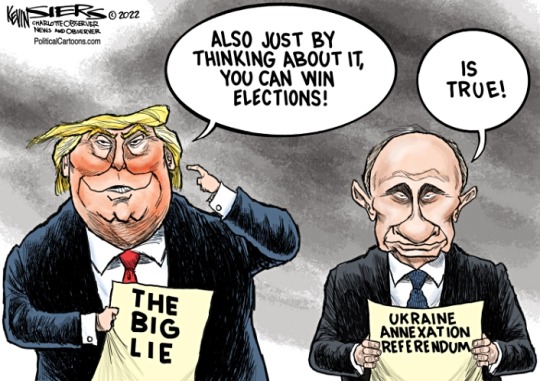
Trump Republicans would probably love to have Vladimir Putin running elections in the United States.
#donald trump#the big lie#election 2020#valdimir putin#sham referendums#putatenland#ukraine#invasion of ukraine#kevin siers
2 notes
·
View notes
Text
El Libro Negro de Vladimir Putin. Autores: Stéphane Courtois y Galia Ackermann
Origen: El Libro Negro de Vladimir Putin. Autores: Stéphane Courtois y Galia Ackermann
View On WordPress
0 notes
Link
Haute-Lifestyle.com contributeur européen, Olivier Longhi couvre la France, l’UE et les points chauds à travers le continent apportant avec sa couverture de nouvelles hebdomadaires. #janetwalker #hautelifestylecom #beltwayinsider #franceculture #olivierlonghi #france #theentertainmentzonecom
#janet walker#haute-lifestyle.com#the-entertainment-zone.com#olivier longhi#france#eu#china#ukraine#putin#russia#valdimir putin
1 note
·
View note
Text
Ko više podržava Rusiju i Putina - Dodik ili opozicija?
Ko više podržava Rusiju i Putina – Dodik ili opozicija?
Tema Mosta Radija Slobodna Evropa bila je kakve su šanse opozicije u Republici Srpskoj da pobjedi na oktobarskim izborima i prekine vladavinu Milorada Dodika koja traje skoro dvije decenije. Sagovornici su bili Tanja Topić, politička analitičarka iz Banjaluke, i Draško Aćimović, ekonomista i bivši diplomata takođe iz Banjaluke.
Bilo je riječi o tome da li je opozicija ponovo upala u Dodikovu…

View On WordPress
0 notes
Text
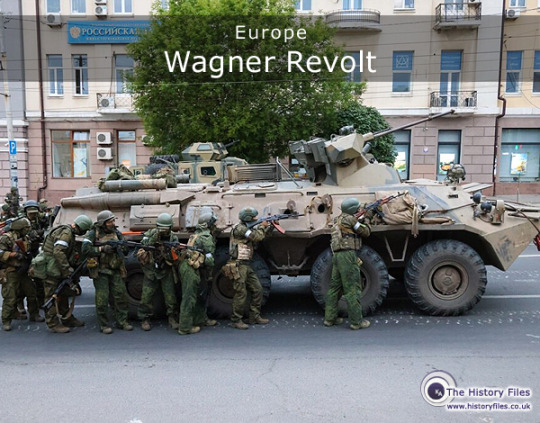
Wagner Revolt: Russia's habit under President Valdimir Putin of using mercenary forces in many of its military operations backfired briefly in 2023 with a revolt by Yevgeny Prigozhin.
2 notes
·
View notes
Note
VALDIMIR PUTIN IS NOW A CATBOY
BIOTERRORISIM WINS
This is a fate too good for Putin
13 notes
·
View notes
Photo
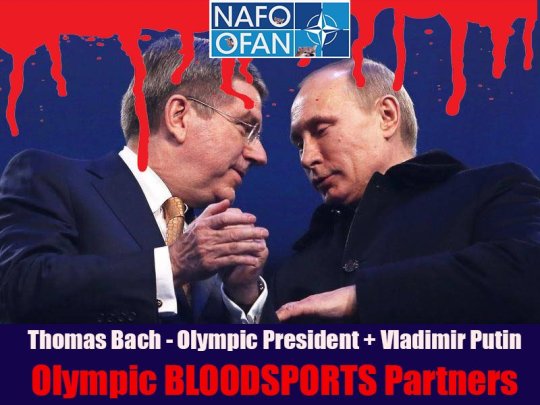

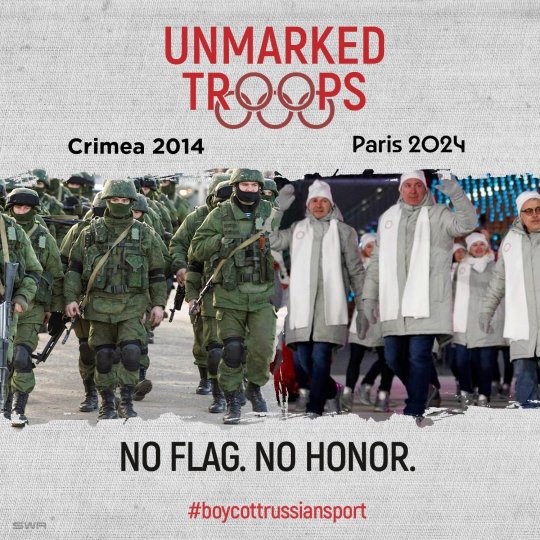



Thomas Bach - #IOC President and friend of indicted #WarCriminal Valdimir Putin was quoted in Chinese media on Saturday 6th May 2023 -
#Nafo and the athletics world must unite to prevent their evil plan becoming an Olympics reality!
"Now we are undertaking all the efforts to accomplish the mission, offer of the #Olympic Movement by having athletes with Russian or Belarusian passports back into the international competitions,"
Bach said. "We are in a very close cooperation and exchange with the International Federations who at this moment are responsible for running their competitions, and we hope very much that this mission then can be accomplished under the conditions which have been established that the athletes from these two countries must take part in a neutral status, so that we can really unify the whole world with the few to the Olympic Games in Paris,
" he added. Bach admitted that there is the risk of politicization about the decision but he insisted "any kind of boycott would only punish their own athletes". "You know the statements of governments who want to decide the people who can participate in the Olympics, the international sports competition, and who not," he commented. "We have to be very firm that these decisions have to be taken by the responsible sports organizations."
(Note to Bach; get fucked sunshine)
"I see that the governments,
it's their right to express their position," Bach said. "But that they also realize that any kind of boycott would only punish their own athletes and would deprive their people to be proud of their athletes of their Olympic performances."
(Note to Bach, Fuck you and your buddy the indicted War Criminal, you are an over-paid and over-privileged appeaser of #WarCrimes)

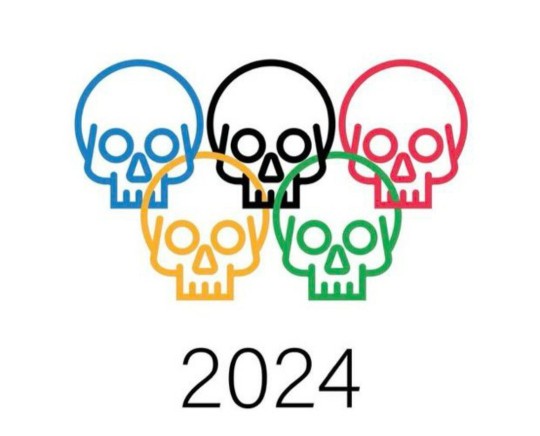
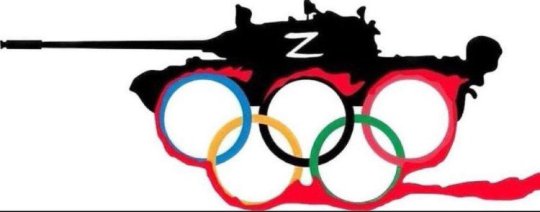
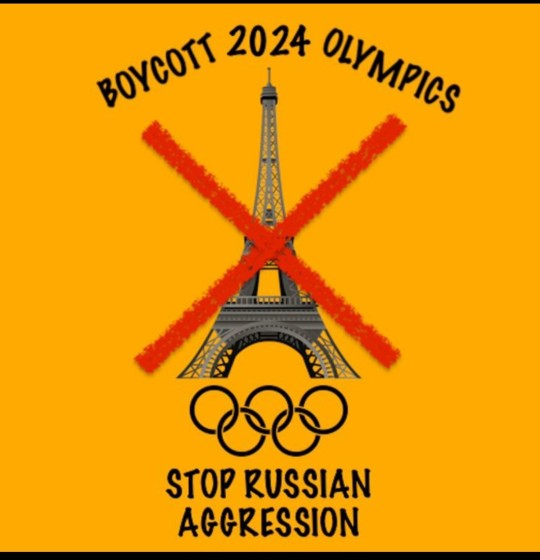
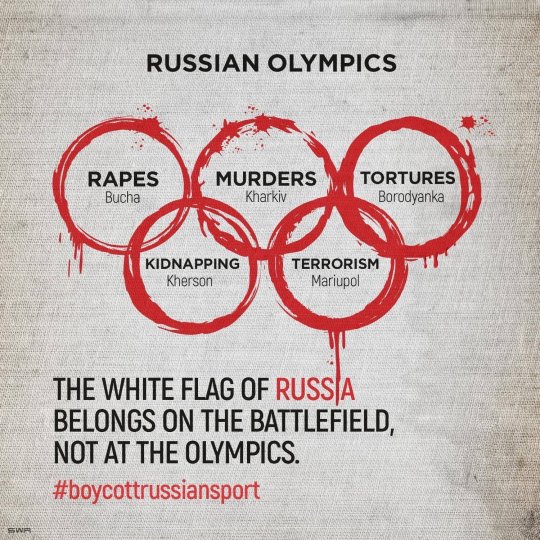
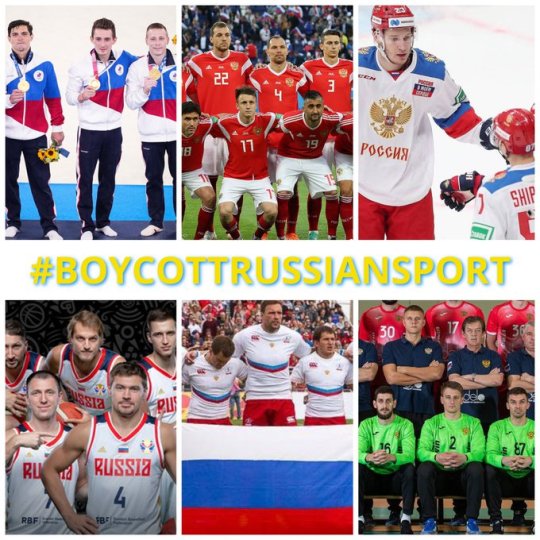
4 notes
·
View notes
Text
Judges 10: 6-10. "The Keys."

The Torah and Gematria warn the spiral staircase that leads towards Ha Shem is also arabah, a zigzag. There are also poles, constructive and deconstructive ways to approach the same moment in time based on the conditions present in the mind at the time. All of this is due to the structure of the Alefbeis, the letters within the Hebrew alphabet which exist in relationships not unlike polynomials or quadratic equations.
Note the Mishnah and Gemara on the Grasshoppers if you have not read them already. They illustrate the immensity of the "word problem" that is Judaism. Even after one learns how to solve for X or arrange the words so they make sense in English, the Rab says one must perfect one's understanding with practical application.
The Torah and Tanakh are a blueprint for civilized life. Only a fool would just talk about it without trying to live it. As a result of our failure to implement the Torah, armies are shooting missiles all day long turning ordinary lives into piles of rubble. Door to door they are doing this all over the world.
Violence is forbidden by the Torah. The jealousy behind the violence is forbidden by the Torah. Oppressing one's fellow man into the service of an army that acts on the ambitions of a corrupt man is forbidden by the Torah. For these things the prescription is death. Not only the death of the perpetrators but of the era that spawned a mankind that is incapable of refraining from wickedness.
Verily the Torah says if you are a savage man in a modern man's costume you must be erased from this world so the world of the future can turn. This message is meant for Donald Trump, the Republicans, the Mormons, Valdimir Putin, Bashar Assad, Muhammad Bin Salman, Kung Pao Kitty in North Korea, that asshole in Iran, all of you shall be soon be dead as penance for your crimes and as a reward for the virtuous.
Anywhere in the world where the few oppress the many, the Angel of Death shall trespass and kill them all, leaving freedom in its wake.
This is so God's Will and His Torah do not lose their place in human history. To Him must always be the Glory and that means the wicked, the corrupt, the violent and the ambitious must be put to death.
Anyone who attacks a Jew anywhere on earth or attacks Israel itself will die.
This brings us to the next Judge, Jephthah, which means to speak, to open the door with the key:
The verb פתח (patah) means to open. And since the opening of lips precedes speaking, and the opening of ears precedes hearing, our verb may also mean to speak and to hear (and to see, to be hospitable, to ask for with open hands, and so on). Our verb may be applied to the opening of constricting things, which gives it the meaning of to loosen or release. This verb (or perhaps a whole separate one) may also be used to mean to engrave, although engraving and opening a surface so that the surface speaks are not that far apart.
Noun פתח (petah) means opening or doorway. Similar noun פתח (petah) means opening in the sense of an unfolding. Noun פתון (pithon) also means opening. Noun פתיחה (petiha) denotes a drawn sword (the edge of a sword was known as the "mouth" of it). A prefixed מ usually indicates place or agency and noun מפתח (miptah) means utterance and the similar masculine noun מפתח (mapteah) means key.
The opposite or zigzag associated with this persona is an Amorite, "a talker". It has the specific connotation of "talking but promising nothing."
The ubiquitous verb אמר ('amar) means to talk or say and may even mean to promise or command. Nouns אמר ('omer) and מאמר (ma'amar) mean speech, word, promise or command. Nouns אמרה ('imra) and אמרה ('emra) mean utterance or speech. The metaphorical noun אמיר ('amir) refers to the leafy and fruit bearing crown of a tree.
The world is being laid to waste because of the contest between "words that are keys" and those that are utter total rubbish.
This mistake happens always after "Evil is done in the eyes of the Lord." The Gematria for verse 6 explains. The Number is 7284, זבחד "sacrifice zabhad", "Get rid of the wolf with the sharply pointed tongue."
If that doesn't work the Shoftim says to sell the offenders, those who are listening to the Wolf into slavery to their supposed masters.
Now we know people are not supposed to have sex with minors. Everyone knows this. A person who is willing to risk this most egregious of sins and those who allow him to do it are allowing a person with deeply flawed character to exist side by side with people to whom they are a threat. Societies are not allowed to sell themselves the idea that the company of persons that do this is acceptable.
Everyone knows cheating on a boyfriend or husband or wife or girlfriend breaks their heart. Allowing it to happen or being supportive when it does forces an innocent person to live alongside someone who is actually a primary threat to their happiness and long life.
We are not allowed to be sold into situations with dangerous immoral persons. We are told to extricate ourselves from these circumstances and never look back. So the next Judge, Jephthah is the character trait of one who discerns how inconceivable life is alongside someone or something who is immoral and forsakes them.
To convince oneself things will work out and attempt to incorporate the person or persons and create a neighborhood with them is called an Ammonite. To build a community alongside persons like the Mormons, who have sex with minors, for example, or tolerate oppression like Pro-Life, or get married to a wiener dog is to commune after the manner of an Ammonite and this is forbidden.
Jephthah
6 Again the Israelites did evil in the eyes of the Lord. They served the Baals and the Ashtoreths, and the gods of Aram, the gods of Sidon, the gods of Moab, the gods of the Ammonites and the gods of the Philistines. And because the Israelites forsook the Lord and no longer served him,
7 he became angry with them. He sold them into the hands of the Philistines and the Ammonites,
8 who that year shattered and crushed them. For eighteen years they oppressed all the Israelites on the east side of the Jordan in Gilead, the land of the Amorites.
9 The Ammonites also crossed the Jordan to fight against Judah, Benjamin and Ephraim; Israel was in great distress.
10 Then the Israelites cried out to the Lord, “We have sinned against you, forsaking our God and serving the Baals.”
The Values in Gematria are:
v. 6. Definitions first:
Baal= a god on the ground. Do not worship men like they are gods.
Ashtoreth= "a central law." The institutionalized practice of fucking little kids by the Mormons is an example of an Ashtoreth. Some religions forbid the consumption of pork, or gay sex or force women to cover, these are also examples of Ashtoreths.
Gods of Aram= Nepotism, corruption, all the evils associated with politics.
The verb רום (rum) means to be high or high up in either a physical, social or even attitudinal sense, and may also refer to the apex in a natural process: the being ripe and ready-for-harvest of fruits. Subsequently, our verb may imply a state beyond ripe (higher than ripe, overripe), which thus refers to rotting and being maggot riddled. This means that to the ancients, higher did not simply mean better, and an arrogant political status that was higher than it should be equaled rot and worms (Acts 12:23).
Gods of Sidon=Sidon means "calcium" or "all bones no meat." Religious practices that do not contribute to the muscles are no good. They detract from life rather than add to it, rendering it into other definition of Sidon, "A river containing fish bones instead of fish."
Gods of Moab= failure to comprehend, slaver to delusion. Moab is the opposite of Moses, "the water of comprehension."
"Water represents the great unknown from which the dry land (ארץ, 'eres) of the known emerges. The ancients knew that vapor rises from the seas and becomes rain and compared this cycle to that of cognition (Isaiah 55:10-1). The words for rain and teacher are the same: מורה (moreh), which are closely related to the familiar word Torah."
So a god of Moab is a heretic, like the ones on CBN, and anyone who listens to them is listening to and acting like an idiot.
youtube
Gods of Ammonites= see above.
Gods of Philistines= Philistines are "burrowers" and "tunnelers." They look for clever ways to be lawless, violent, or weird, just like the Mormons. All religions have tunnelers, however, people who quote things and make everyone else miserable and no one knows why.
v. 7: He became angry...the Value in Gematria is 3644, גודד, gudad, "until goodness advances."
v. 8: For eighteen years they oppressed all the Israelites on the east side of the Jordan in Gilead, the land of the Amorites. The East Side of the Jordan in Gilead is close but not close enough. Amorites speak out of habit rather than direct experience. They cannot help one cross the Jordan and see Ha Shem in the Promised Land.
The Value in Gematria is 7293, זבטג, zabatag, "the crown of the wolf" is to keep others from reaching the full potential of the Jewish Self by spewing nonsense. At age 18, one's susceptibility to this should end.
v. 9: The Ammonites also crossed the Jordan to fight against Judah, Benjamin and Ephraim; Israel was in great distress.
Jordan= "a young judge."
Judah= God's glory.
Benjamin= "son who is readily available."
Ephraim= "to make up the face in the sea." (to see himself in God's image.)
"To cure Israel of distress, a young man must readily demonstrate the ability to see himself made in God's image."
The Value in Gematria is 6051, ואֶפֶסהא, "and the world will change."
v. 10: Then the Israelites cried out to the Lord, “We have sinned against you, forsaking our God and serving the Baals.” "Do not cry out, act."
God did not want to hear cries after He freed us from Egypt. Freedom, AKA citizenship is not a venue for complaints or relapses into oppression. There is no need to repent for crying out, one has to act appropriately instead.
The Value in Gematria is 6135, ואגה and aga, "and shine."
0 notes
Text
Former President Donald Trump blamed the United States for "almost forcing" Russian President Vladimir Putin to invade Ukraine.
Trump's remarks came as Russia continued to stall in their struggling "special military operation," ordered by Russian President Vladimir Putin more than seven months earlier on February 24, 2022. The ex-President has been critical of how President Joe Biden, who he may run against in the 2024 presidential election, has handled diplomatic relations with Russia. But critics accuse Trump of taking positions seen as favorable to Putin.
During an interview on Real America's Voice, a right-wing network favorable to Trump, the former President criticized the Biden administration. He argued that their "rhetoric" in the months leading up to the Ukraine invasion contributed to Putin's decision.
"They actually taunted him, if you really look at it. Our country, and our so-called leadership, taunted Putin. I said, you know, they're almost forcing him to go in with what they're saying. The rhetoric was so dumb."
He claimed, without evidence, that the Ukraine invasion would have "never" happened if he were still President. He also did not provide any specific examples of how the U.S. "taunted" Putin into invading Ukraine.
Trump also touted his working relationship with both Putin and Ukraine President Volodymyr Zelensky when Real America's Voice host Wayne Root suggested Biden could send Trump to negotiate a peace deal.
"I got along very well with both Zelensky and Putin," Trump said. "If you remember, Zelensky was very nice because when they asked him about the Ukraine, Ukraine, Ukraine hoax—that was the phone call—he looked at them and said 'What was wrong with the call? He did nothing wrong.'"
William Pomeranz, the Director of the Wilson Center's Kennan Institute, cast doubt on Trump's comments in an interview with Newsweek, pointing out that Biden said Ukraine would need to work on its corruption in order to gain entry to the North Atlantic Treaty Organization (NATO) but that Putin's given justification for the invasion was unrelated to NATO.
"It's something Putin has been thinking about for many years," he said. "I think Putin basically launched this campaign to annex what was two territories—but is now four territories—to expand the Russian Federation. I think this was an example of imperial intent. He wanted to expand his territory and the Russian empire."
He said it will never be known if the invasion would have occurred if Trump won the 2020 election but that he did not believe Trump would have "stood up for Ukraine."
"Did Trump think that he had such a great relationship that he could dismay him from attacking, I just don't think so," he said.
TRUMP FACED CRITICISM FOR PAST RUSSIA-UKRAINE WAR COMMENTS
Trump has faced criticism for several comments about the Russia-Ukraine war. In the days leading up to the conflict, Trump said Putin was a "genius" for moving troops into Ukraine.
"Here's a guy that says, you know, 'I'm gonna declare a big portion of Ukraine independent.' He used the word 'independent,' 'and we're gonna go out and we're gonna go in and we're gonna help keep peace.' You gotta say that's pretty savvy," Trump told Clay Travis and Buck Sexton in February.
In March, he again renewed controversy after appearing to push Putin to release any information he has about Hunter Biden's alleged business dealings in Russia during a conversation on Real America's Voice about an accusation that Biden's company received $3.5 million from the widow of a former Moscow mayor.
"She gave him three and half million dollars. So now I would think Putin would know the answer to that. I think he should release it. I think we should know that answer," he said.
Newsweek reached out to Trump's office and the White House for comment.
#us politics#news#newsweek#2022#ukrainian crisis#ukriane#russia#russo ukrainian war#imperial russia#world politics#world news#donald trump#biden administration#trump administration#quid pro quo#impeachment#valdimir putin#volodymyr zelensky#real america's voice#the clay travis and buck sexton show#hunter biden#nato#north atlantic treaty organization#William Pomeranz
38 notes
·
View notes
Link
Vladimir Putin will not attend the Group of Twenty G-20 summit in Indonesia next week, an Indonesian government official said today.
0 notes
Text
2 Kings 23: 15-18. "The Tomb."
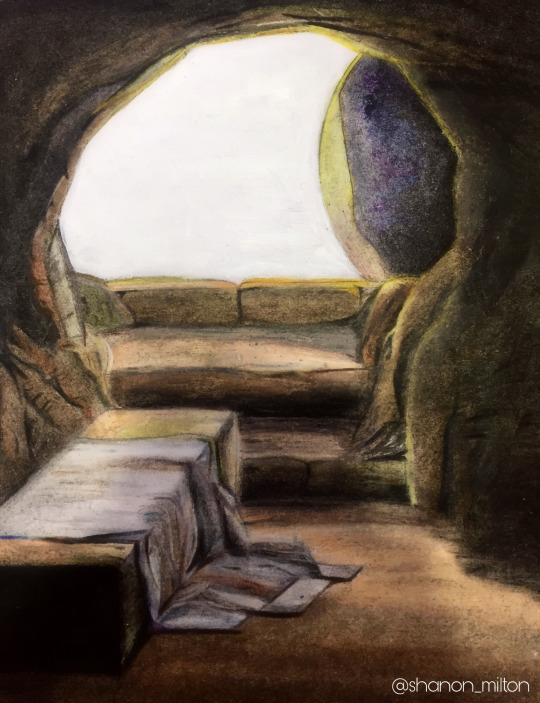
Continuing our deconstruction of the errors made by the Kings of Israel and Judah. We know now the signs of the age include repatriation of the Israeliates in their own territory and an end to all of the shrines, Asherah Poles and altars that are keeping them separate from their point of origin and their ongoing destiny as the protectors of the human race.
The passage that follows revisits the high place or attitude called Jeroboam, "may the people contend" that presupposes people in positions of power get to have whatever they want, however and whenever they want it.
Every sovereign territory on the planet has a constitution that defines the responsibilities and privileges of its heads of state. Deviation and violations are not allowed. The government of the United States, for example is not sovereign at this time because President Biden has not prosecuted a series of violations perpetrated by the Trump Administration starting with election fraud in 2016 and pretty much everything else Trump did while he was in office. Many, many unconstitutional, state, and local laws were violated and the real issue- more than a few international laws were violated as well.
Our international partners need to be able to expect the principals of sound government, the very same that confer sovereignty are followed in order to ensure global social and ecomomic order are maintained. When these are not adhered to, who knows what will happen next? No one wants to hazard a guess as to what kind of atrocities are in our future, like the invasion of Ukraine, or the Mormon infiltration of Hamas because a tyrant went unchecked.
Thus, when a tryrant like Donald Trump or Valdimir Putin surfaces, he and his cohorts must immediately be put to death and free elections must be held in order to protect the world from abuses of power.
Joe Biden has also not arrested the Supreme Court Justices that overturned RVW. The rights of women are protected by international law in the UN Declaration of Human Rights:
Paragraph 7.3 [Reproductive rights] includes [couples' and individuals'] right to make decisions concerning reproduction free of discrimination, coercion and violence, as expressed in human rights documents.
This violation of international statutes protecting reproductive rights is a sign of a tyranny, and this can prevent a nation from enjoying sovereign status. Many states are trying to revoke LGBTQ rights and this is also a risk to national sovereignty under the terms of the UN Charter and Declaration.
Sovereigns and presidents are not immune from prosecution for Crimes Against Hunamity or War Crimes. The belief they are protected and should be allowed to continue to hold office and commit such crimes is called a high place, and it is not so high it is immune from common sense or the law.
The opposite of a high place is a low place, a sacred place called a tomb. Read why this is the case below:
15 Even the altar at Bethel, the high place made by Jeroboam son of Nebat, who had caused Israel to sin—even that altar and high place he demolished. He burned the high place and ground it to powder, and burned the Asherah pole also.
16 Then Josiah looked around, and when he saw the tombs that were there on the hillside, he had the bones removed from them and burned on the altar to defile it, in accordance with the word of the Lord proclaimed by the man of God who foretold these things.
17 The king asked, “What is that tombstone I see?”
The people of the city said, “It marks the tomb of the man of God who came from Judah and pronounced against the altar of Bethel the very things you have done to it.”
18 “Leave it alone,” he said. “Don’t let anyone disturb his bones.” So they spared his bones and those of the prophet who had come from Samaria.
Jeroboam son of Nebat desired everything he laid his eyes on. He believed the increase in the wealth of the people meant more for him. Sovereigns are supposed to behave in the opposite manner and increase the wealth of the nation for the sake of the national interest. The nation is the high place, the Sovereign supports it from underneath.
This belief turns a jurisdiction, like the entire planet into what is called Bethel, "The House of God":
"The noun בית (bayit) means house. It sometimes merely denotes a domestic building, but mostly it denotes the realm of authority of the house-father, or אב (ab).
This ab is commonly the living alpha male of a household, but may very well be a founding ancestor (as in the familiar term the "house of Israel"). The אב (ab) may also be a deity, in which case the בית (bayit) is that which we know as a temple.
In the larger economy, a house interacts with other houses. These interactions are governed by the אב (ab), or "father" and executed by the בנים (benim), or "sons": those people living in the house, irrespective of any biological relation with the אב (ab). The "sons" combined add up to אם ('em), which means both "mother" and "tribe"."
Within the Melachim, the Torah and the Tanakh itself we see the problems associated with sovereignty aren't within the law, just the high places, or unfounded or illegal positions taken against it.
The Values in Gematria for the above verses explain:
v. 15: Ground to powder....the Value in Gematria is 8924, חטבד, hattab, "the well." A well is an oath, the commitment to become a productive, self-sufficient, enlightened human being. What happened to this? Human nature must first be ground down then raised up again as the Book of Genesis states.
"G‑d then formed man out of dust of the ground, and He blew into his nostrils a soul of life, and man became a living being." (Gen. 2:7)
"G‑d then formed": We do not find any mention of "creation" in this verse, for both the body and the soul were formed of pre-existing matter: the body from earth, and the soul from the essence of G‑d. (Sefer HaMa'amarim 5748, p. 14) Adam (and Eve) were created in the form of mature, twenty-year old adults. (Bereishit Rabbah 14:7)
So owning the body of a man is not enough.
v. 16: Burned the bones, defiled the altar. The Value in Gematria is 10961, אאֶפֶסטואֶפֶס, epistophias, "the snake's office."
Bones on the altar means we must willingly view the evidence against us. If we cannot admit we succumbed the snake and decided to use each other's bodies in order to create slag instead of choosing to live here appropriately (as our laws insist), we have no hope for redemption.
v. 17: The Tombstone of the Man From Judah= Jacob when he fought the angel and then married Leah and gave birth to the 12 Tribes. The Tribal Leaders are the keys to the gate of re-entry to Eden.
The Value in Gematria is 9775, טזזה, tezza, "the thesis". Judaism's central thesis is the redemption of mankind back to the edenic state of the garden.
v. 18: The prophet from Samaria is Elisha, "the spirit of the government."
"The verb ישע (yasha') means to be unrestricted and thus to be free and thus to be saved (from restriction, from oppression and thus from ultimate demise).
A doer of this verb is a savior. Nouns ישועה (yeshua), ישע (yesha') and תשועה (teshua) mean salvation. Adjective שוע (shoa') means (financially) independent, freed in an economic sense."
The Value in Gematria is 6161, ואוא, and oh, "the hearth." The Hebrew heart and hearth are the cause of all that is worthwhile in civilized life.
The high places and Asherah poles are clear distortions of what was intended by God, a long time ago, to create a way of life we are actively disregarding and the price for this will also be very high.
Our sages and religious personalities from the past examined human nature and left scriptures or tombs behind to help us understand the plight of humanity at any given time and what caused it to suffer. We pay them no heed. We say we know we should, that we want to, but we don't. Alas, this might mean we are at last a lost cause.
If we live long enough mankind will read the contents of this forum and realize we made huge mistakes allowing Donald Trump's inauguration to take place, the same thing for the invasion of Ukraine, and also the existence of the Church of Jesus Christ of Latter Day Saints, all horrible horrible mistakes, contradicted by the laws of God and also of man.
If we want to make this better before it is way too late, and perhaps it already is, millions are dead, we must look down not up. And America needs to be the first to do it. Sovereignty and self-government are a privilege associated with the upkeep of certain standards.
The world cannot abide the presence of a nuclear power that cannot manage its affairs in the utmost or risk the chance religious extemists mjght topple its leadership and project force against its neighbors or international partners, including the people of Israel their favorite target. We won't be sorry if we reflect upon these things and resort to the laws we have written in order to fix our mistakes.
0 notes
Text
3 Nephi 19, Part 3. "The Opinion."
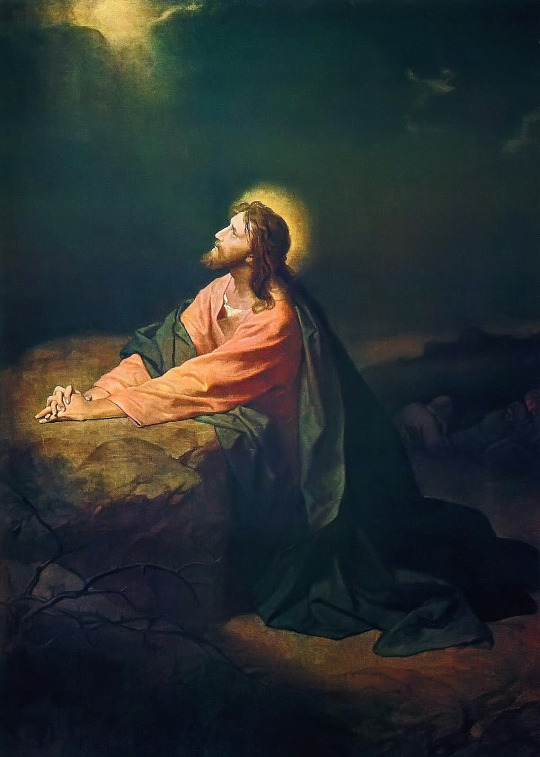
The Earth orbits heaven not the other way around. To be Baptized asnd receive the Holy Ghost is acceptance of the superiority of God over all things and to trust His scriptures are here to help not hinder our ability to hope for peace on earth.
Without the benefit of these Offices prayer has no purpose. Now Jesus through His Prophet, this Book of Mormon speaks of praying to Him which is unorthodox as the only prayer the Gospels command to us is the Our Father. Why it says to do this, we will find out:
15 And it came to pass that while the angels were ministering unto the disciples, behold, Jesus came and stood in the midst and ministered unto them.
16 And it came to pass that he spake unto the multitude, and commanded them that they should kneel down again upon the earth, and also that his disciples should kneel down upon the earth.
17 And it came to pass that when they had all knelt down upon the earth, he commanded his disciples that they should pray.
18 And behold, they began to pray; and they did pray unto Jesus, calling him their Lord and their God.
The Values in Gematria are:
v. 15: The Value in Gematria is 7010, זאֶפֶסאאֶפֶס, zepesapes, "the starting line stripe."
v. 16: The Value in Gematria is 8296, חבטו, "the hit." = "wake up."
v. 17: The Value in Gematria is 6351, וגהא, "and then..."
v. 18: The Value in Gematria is 4695, דוטה , dota, "her opinion."
We know religion is full of laws and also many opinions as to what God and the Christ expect of humanity if certain conditions inherent to the relationship are to be met. The Gospels do not have to be historically correct or accurate in every detail in order to perfectly pertain to life on earth. They were written a very long time ago. The Book of Mormon is essentially an opinion, a type of polemic that stirs up a topic and causes a little strife through its resolution.
A polemic is something that stirs up controversy by having a negative opinion, usually aimed at a particular group. A piece of writing can be a polemic, as long as it gets someone's goat. Polemic comes from the Greek polemikos meaning "warlike, belligerent." It's like challenging someone to a duel of ideas.
The use of the pronoun her in this case suggests the opinion favor what is called Binah, "the construction of valuable meaning" vs. any other kind of end point for the discussion, specifically that humanity and the greater good must benefit from the conclusions drawn from the opinion.
If one is not praying for hope and strength and direction for humanity at this time, one is praying for the wrong things. We have allowed fools, freaks, and fuckups to drag us all into the crevasses of hell once again, and we need a fast way out, the fastest.
The Republican Party and its allies, a contemporary Nazi organization have helped Valdimir Putin start a world war through their invasion of Gaza in Israel. They have to be stopped. Prayer for forgiveness for allowing these despicable individuals to catch us unawares is a good place to start our opinionating as to what to do next that is utterly Godly and good for the rest of the world.
0 notes
Text
Thai Prime Minister Srettha Thavisin meets with Russian leader Valdimir Putin at the 3rd Belt and Road conference in Beijing. They reportedly discussed tourism cooperation.
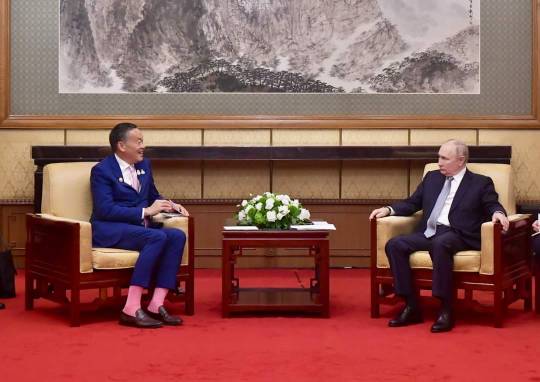
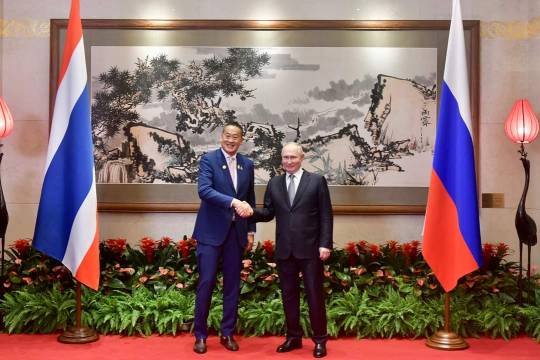
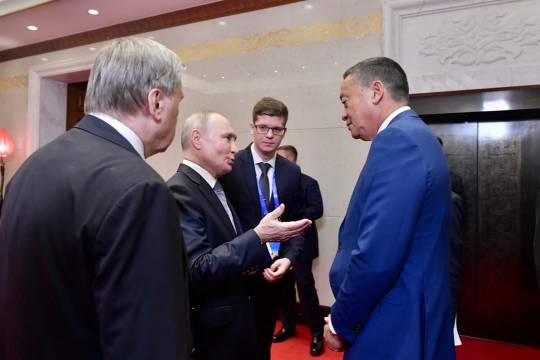

0 notes